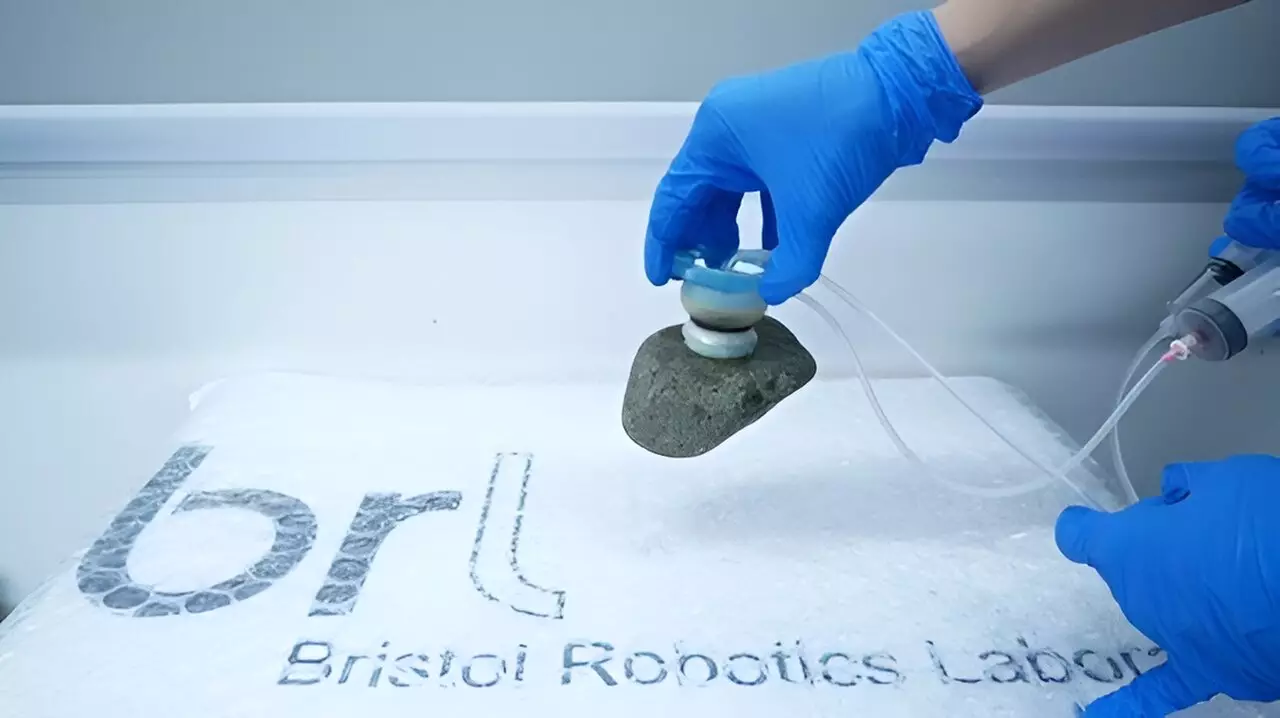Scientists at the University of Bristol have recently made a groundbreaking development in the field of robotics with the creation of a new robotic suction cup. This innovative suction cup has the remarkable ability to grasp rough, curved, and heavy stone, mimicking the adaptive suction abilities found in octopus biological suckers. By studying the structures of octopus suckers, the researchers at the Bristol Robotics Laboratory were able to design a multi-layer soft structure and an artificial fluidic system that replicate the musculature and mucus structures of biological suckers.
The findings of this research, published in the journal PNAS, shed light on the incredible adaptive suction abilities of biological suckers. While biological organisms use suction as a highly evolved adhesion strategy to grasp onto various objects, the researchers discovered that the key to their success lies in a combination of mechanical conformation and regulated water seal. This innovative multi-scale suction mechanism enables biological suckers to attach to dry complex surfaces such as rocks and shells, which are typically challenging for artificial suction cups.
Lead author Tianqi Yue elaborated on the significance of this development, stating that the combination of mechanical conformation and liquid seal is the secret behind the adaptive suction abilities of biological organisms. By utilizing soft materials to conform to surface shapes and spreading water onto contacting surfaces, the robotic suction cup achieves long-lasting suction on diverse surfaces while minimizing leakage. This new adaptive suction mechanism offers a powerful strategy for the development of versatile soft adhesion in industrial applications.
The potential applications of this innovative robotic suction cup are vast, particularly in the industrial sector. With the ability to grasp a variety of irregular objects, this next-generation robotic gripper has the potential to revolutionize manufacturing processes. The team behind this development plans to further enhance the suction cup by embedding sensors into the device to regulate its behavior, making it even more intelligent and adaptable in various environments.
The development of this new robotic suction cup represents a significant advancement in the field of robotics and bio-inspired engineering. By mimicking nature’s adaptive suction abilities, scientists have unlocked new possibilities for the design of versatile soft adhesion technologies. This innovative research not only showcases the potential of bio-inspired robotics but also highlights the importance of understanding and replicating the complex mechanisms found in nature. As researchers continue to push the boundaries of innovation, the future of robotics looks promising with the integration of adaptive suction mechanisms inspired by biological organisms.


Leave a Reply